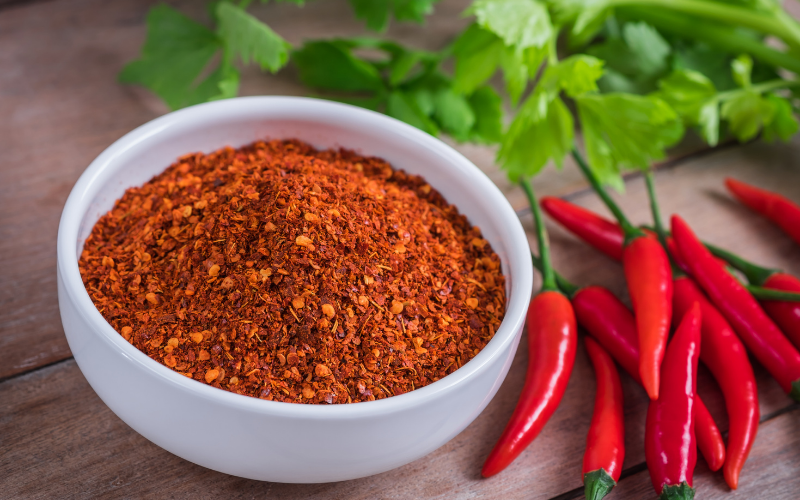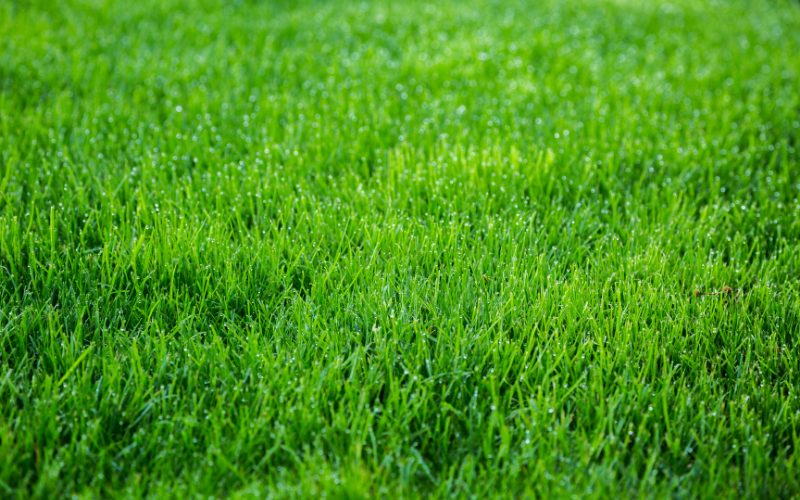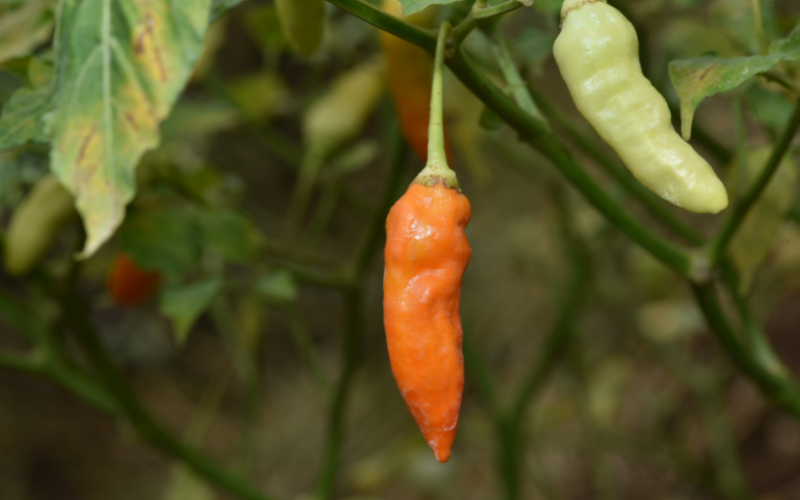Looking for a way to keep dogs off of your lawn? Wondering if a homemade solution of cayenne pepper and water can prevent an ant infestation? Or if a straight dusting of cayenne pepper will do the trick? There may be more things to consider than just the health of the grass if you want a healthy lawn in the long term.

Will Cayenne Pepper Kill Grass?
No, cayenne pepper will not kill grass. Applying cayenne pepper to your lawn in a reasonable dose is no more harmful than sprinkling a handful of parsley on it. The capsaicin that gives cayenne its “kick” isn’t harmful or even detected by grass or plants. This substance only affects people and most animals.
One thing to consider is how cayenne affects worms, especially if you plan to compost your lawn clippings or consider worms a key part of the health of your lawn. Capsaicin, the “hot” part of cayenne pepper, can cause severe irritation to the outer membrane of all types of worms on contact. Over time, this can lead to drastically reduced worm populations.
Can Any Chili Pepper Kill Grass?
No known chili pepper can kill grass or harm it in any meaningful way. Though the component in the chili peppers that many animals and bugs find irritating can harm those animals in high doses, plants have proven to be remarkably resilient. In natural quantities, capsaicin should not be able to harm any plant, including grass and any alternative type of lawn plant.
Related Article: What Kills Grass?

How Cayenne Pepper Affects Your Lawn
Cayenne pepper is an irritant for most living creatures. Below are some ways cayenne pepper affects the health and condition of your lawn.
Repels Animals
Dogs and cats are both put off by the smell of cayenne pepper. It’s an irritant that they want to stay away from, even in small quantities. Capsaicin, the “active ingredient” of cayenne pepper, is often applied to bird seed mixes to keep squirrels and deer away, too. It may be useful to note that rabbits have been shown to be more resilient against capsaicin-based repellents than many other animals and may not be as easily repelled.
Prevents Digging
Spraying or flooding cayenne pepper on molehills or groundhog mounds can help flush the animals out and discourage them from remaining in your yard. Cayenne pepper may be an irritant to these animals, but a small amount should not cause anything more than temporary discomfort.
Repels Insects
Cayenne pepper applied to soil makes for an unfavorable, though not unlivable, environment for many insects and bugs. This includes all types of worms, grubs, and ants. Cayenne has both an unappealing scent and is an irritant for these types of creatures.
Attracts Birds
Birds aren’t bothered by capsaicin the way dogs and people are. This is why birds can eat hot pepper seeds and even traditional birdseed with cayenne pepper mixed in. If you do apply cayenne to your lawn, birds may come looking for a treat. As long as you haven’t seeded your lawn recently, this may be a harmless side effect.
What Can Cayenne Pepper Do to a Dog?
Most lawn owners interested in applying cayenne pepper to their lawns do so to keep dogs off of those lawns. Cayenne pepper repels many dogs with the smell alone, even before they approach your lawn. A few tablespoons added to a gallon of water and sprayed across 1/16 of an acre to 1/8 of an acre is enough to make your yard smell undesirable to dogs.
If you dump 8 oz to 1 pound of the powder on that same patch of lawn, you may end up with enough cayenne to cause small burns on soft paws or eye irritation and damage. This goes for any type of animal and works the same way for people. This amount is less of a deterrent and more of a health hazard.

Is It Illegal to Put Cayenne Pepper on Your Lawn?
It is not illegal to put cayenne pepper on your lawn. However, if you do choose to do so, make sure you keep all of the cayenne pepper within your property lines and warn any guests who may need to walk on or near your lawn. Powdered cayenne pepper can be a severe irritant for people as well as pets. Children and anyone that suffers from seasonal or spice allergies can be more susceptible to the adverse effects of cayenne pepper than dogs are.
Is Cayenne Pepper Worth Using on a Lawn?
Does cayenne pepper kill grass? No. Does cayenne pepper kill dogs? No. However, it can harm dogs, cats, worms, and people if used irresponsibly. Used in small quantities, cayenne pepper can be a good, natural deterrent option to keep dogs, squirrels, deer, and insects off of your lawn and out of your landscaping without causing long-lasting harm.



I live in Southern California and we have wild burros that roam the canyons and neighborhoods. They come in at all times of the day and mostly at night and are eating my $8000 worth of sod I recently put down.
Local codes in Lima Linda, Ca. do not allow me to use electric fencing except to keep livestock in, not out. Since I just found your post, I am keen to try the cayenne and hopefully get favorable results. The burros are federally protected, so there is very little a person can do to keep them out without technically harassing them. That also leads to steep fines.
Hoping this is a fix.
Thanks,
Mike
Mike! I feel your pain. I hope this solution has success. Keep me posted with the results!
Tom
Will cayenne pepper keep opossums out of my yard?
Hi Louise,
Cayenne pepper could help keep oppossums out of your yard. The capsaicin found in hot peppers like cayenne will irritate the opposum’s sinuses once smelled and will keep it from going near the area. If the opossum is very stubborn, you can try to make a cayenne pepper spray mixed with other animal repellent solutions to cover the area the oppossum visits.
Let me know how it goes.
Cheers, Tom.
How long will the pepper last? Will you need to reapply?
Hi Jo,
Well, this really depends on the weather and if you use an irrigation system. If it rains or you water your lawn, then the pepper will wash down into the soil. So, if you’re trying to keep a neighborhood dog or birds off your yard, then I recommend reapplying as often as needed.
Cayenne pepper isn’t cheap, so I suggest concentrating on the areas the pest seems to hang out.
Thanks for the question.
Tom.